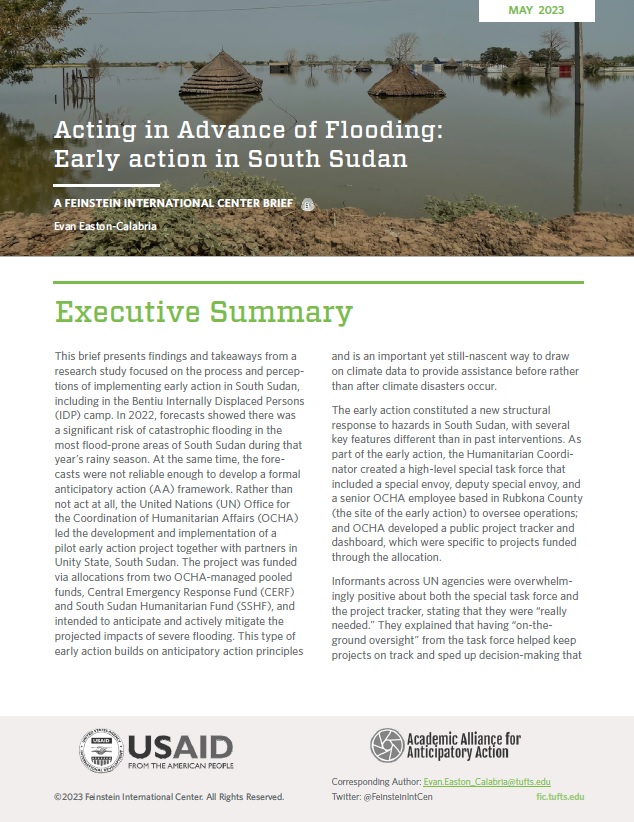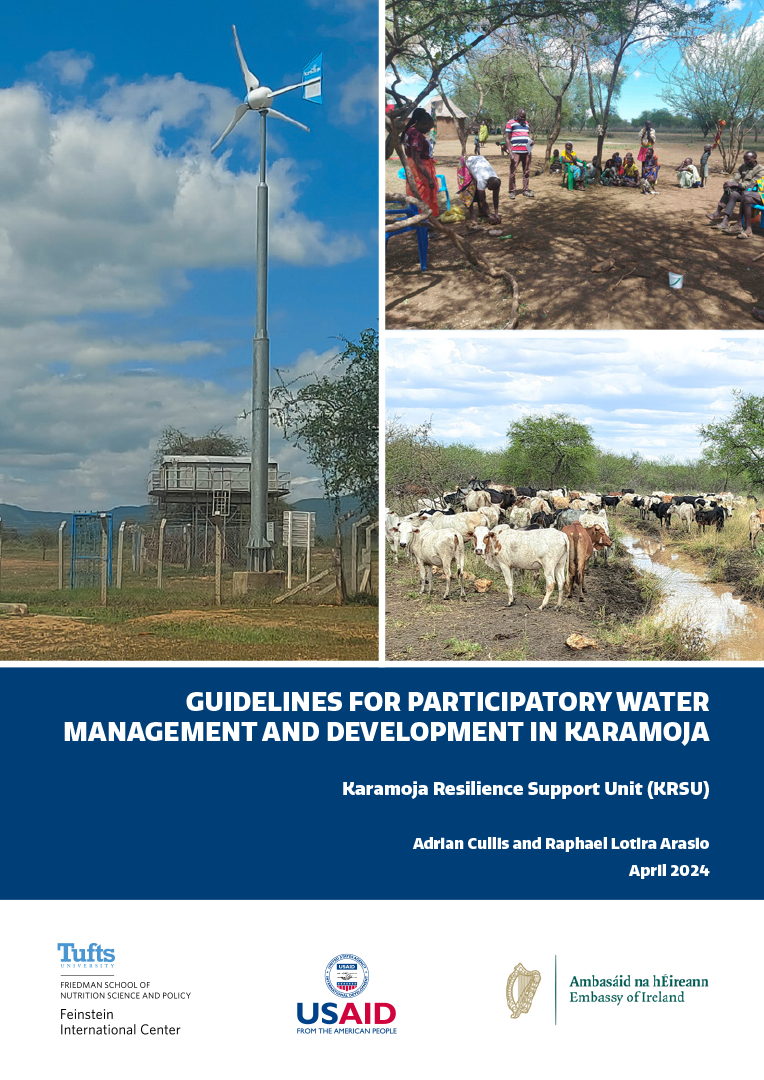How do humanitarians perceive the process of designing and implementing assistance in advance of climate hazards? In 2022 the United Nations Office for the Coordination of Humanitarian Affairs (UN OCHA) developed and implemented an early action pilot to address impending extreme flooding in South Sudan. The intervention was concentrated in and around the Bentiu Internally Displaced Persons (IDP) camp, Unity State.
This brief provides findings from a study about involved UN actors’ perceptions of this early action intervention. It contributes evidence on implementing early action (a type of anticipatory action) in complex environments, including for displaced people, and in the face of protracted crises. As the anticipatory action community and other humanitarians seek to address extreme climate events before they occur and broaden the environments in which early and anticipatory action can effectively be undertaken, deeper understanding of processes is important.
Findings include:
- Informants across UN agencies were overwhelmingly positive about the novel structure of the intervention, which included a special task force and a project tracker. Informants explained that having “on-the-ground oversight” from the task force helped keep projects on track and sped up decision-making.
- At the same time, some informants perceived the regular follow-ups with project partners through the task force as an uncomfortable form of micro-managing. Others explained that limited decision-making power of agency staff working at the sub-national level led to delays in implementation. These findings relate to power dynamics and link to larger calls for humanitarian localization in the aid sector.
- The majority of informants discussed the need to increase linkages between anticipatory action and development. Suggestions for doing so included increasing adaptive actions, such as building elevated houses for households and paving roads to improve access to difficult-to-reach areas. While little of the literature on anticipatory action considers its role in development processes and programming, or vice versa, this study illustrates that humanitarian practitioners see this link as critical. They believe that better links could enable the humanitarian and development systems to better work together to provide long-term solutions rather than the limited short-term help that anticipatory action was perceived by many as constituting.
This project was undertaken with the cooperation of UN OCHA. The study was conducted as part of the work of the Academic Alliance on Anticipatory Action (4As), a consortium of universities around the world seeking to inform and enhance anticipatory action. The 4As Consortium is funded by USAID and led by Tufts University in partnership with Bangladesh University of Engineering and Technology, Eduardo Mondlane University in Mozambique. Makerere University in Uganda, the National University of Lesotho, University of Namibia, and University of the Philippines.







